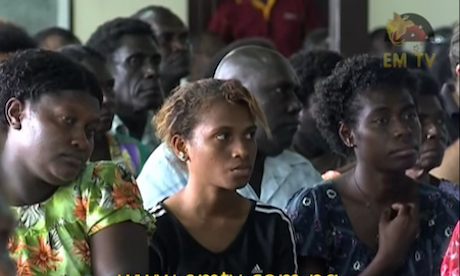The bishop of Bougainville, Bernard Unabali, has called on the people of Bougainville to see reconciliation as means for bringing peace and not just for political reasons.
He said this during his speech at Teituno village in the Wisai area of Buin in south Bougainville while witnessing a reconciliation ceremony in May.
The reconciliation saw the families of late Raphael Duake and Lucy Rukume who are brother and sister coming together once again after a ten year conflict that kept them disunited.
The conflict that affected the livelihood of the two families and the people of Wisai arose from differences and misunderstandings between the two families.
This led to killings that saw both families losing their loved ones.
The reconciliation ceremony began with a para-liturgy led by Unabali followed by a buai chewing and tree planting ceremonies.
In his speech, Bishop Unabali challenged the people of Bougainville to be true witnesses of peace.
Almost every family in the islands of Bougainville, an autonomous region of about 300,000 people in the Pacific Island state of Papua New Guinea, has a story to tell of death and suffering during the decade long civil war (1989-1998), known as ‘the Crisis’.
Yet fifteen years after the 2001 peace agreement, there is no accurate information about the scale of atrocities which occurred to inform ongoing peace and reconciliation efforts being supported by the government and international donors.
Now members of civil society and grassroots communities are concerned that lack of truth-telling and transitional justice is hindering durable reconciliation.
“I believe there should be a truth telling program here and I think the timing is right,” Helen Hakena, Director of the Leitana Nehan Women’s Development Agency, a local non-government organisation, told Inter Press Service.
“It is nearly twenty years [since the conflict] and some people have moved on with their lives, while there are others who have just cut off all sense of belonging because they are still hurting.”
Unabali, concurs. “Truth is absolutely necessary, there is no doubt it is an absolutely necessary thing for peace and justice,” he declared.
Source
- wantokniuspepa.com
- ipsnews.net
- Image: screenshot: youtube.com
